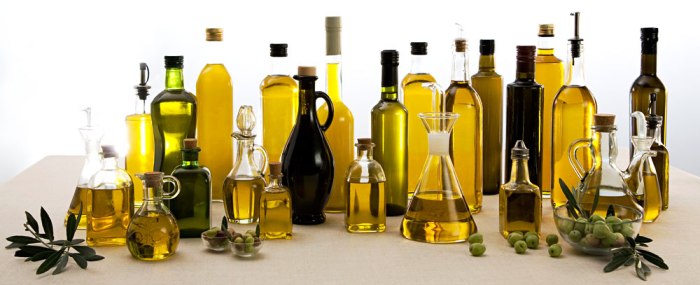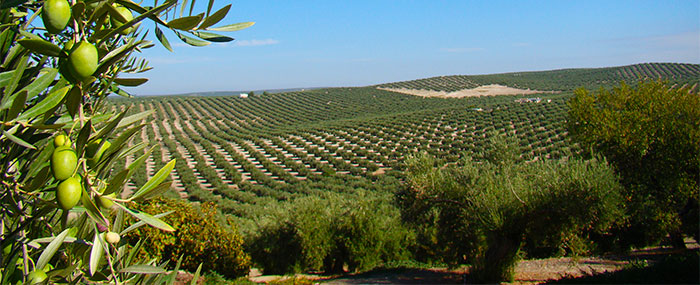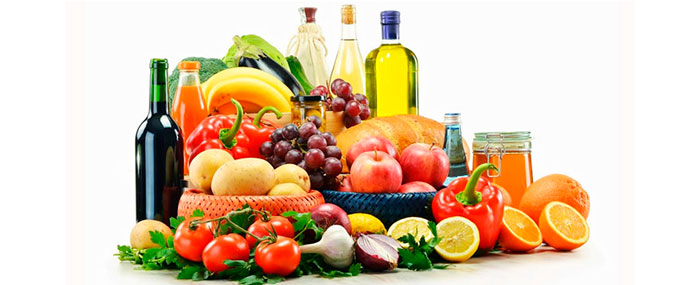Did you know ...
Oil facts

- Air, light and heat affect olive oil, so you should make sure the bottle is properly closed and store it at room temperature out of direct sunlight.
- As olive oil is a natural product, it does not improve with age, unlike wine. It should therefore be used as soon as possible in the year it was produced.
- However, depending on the variety, a well preserved oil can last up to 18 months without losing its organoleptic qualities.
- An oil's colour does not indicate quality.
Cultivation facts

- Between 4 and 5 kilos of olives are needed to produce 1 litre of olive oil.
- The tree's age only affects the quantity produced, not the quality. An olive tree starts to produce between the ages of 5 and 10, and its production starts to decline after it is 100 years old.
- An olive's colour does not depend on the variety but on how ripe it is. Olives are green at the beginning and become black as they ripen.
Health and beauty facts

- Virgin olive oil is a pure fruit juice with no additives or preservatives.
- Olive oil contains between 60 and 80% of monounsaturated fats (in this case, oleic acid), which help to reduce "bad cholesterol" (LDL) and preserve "good cholesterol" (HDL). It also has just the right amount of linoleic acid, which is essential for the human diet, although in excess it can cause oxidation, which is harmful for our health.
- Olive oil has vitamins A, D, K and especially E.
- Researchers confirm that olive oil reduces the risk of heart diseases and some types of cancer. It also helps to maintain a low blood pressure and to alleviate arthritis.
- The majority of the medical community thinks that olive oil is antioxidant, helps the cardiovascular flow and delays the cell ageing process.
- Olive oil aids digestion and helps the body to absorb calcium.
- Among other properties, olive oil helps to improve the appearance and texture of our skin.
Food notes

- When dressing salads and vegetables, pour the olive oil first, then add salt and vinegar or lemon. Adding the oil first provides a protective layer which helps the vegetables to stay fresh and crisp.
- Olive oil is excellent to spread on meat in a barbecue, as it helps to preserve the natural juices.
- Olive oil adds flavour to charcoal-grilled meat whilst it is browning. The meat must be cooked on a low heat with only a little oil.
- Any meat, fish or vegetable fried in olive oil is tastier, as the oil prevents the food from sticking and becoming greasy.
- Meat marinated in olive oil before cooking will be much tastier. As olive oil is a very delicate product, it helps the aromatic herbs and spices to mix.
- To enjoy a delicious snack, spread a little garlic on toast and then add some olive oil.
- If you use a little olive oil in the water when cooking pasta, it will prevent it from sticking
- Sauté meat and vegetables in olive oil for a few minutes until they are tender and season.
